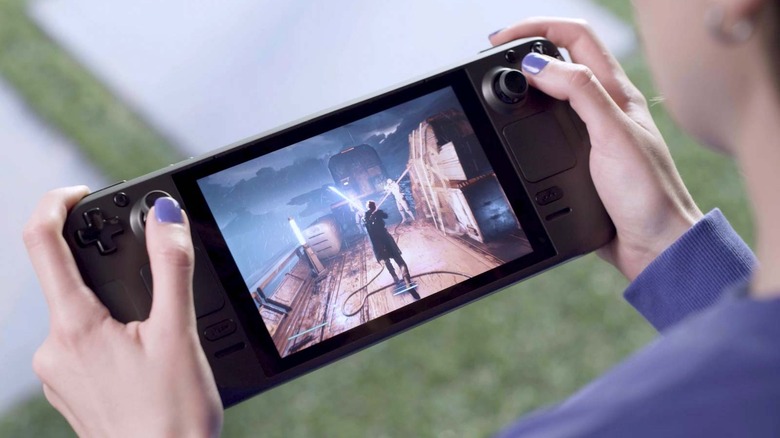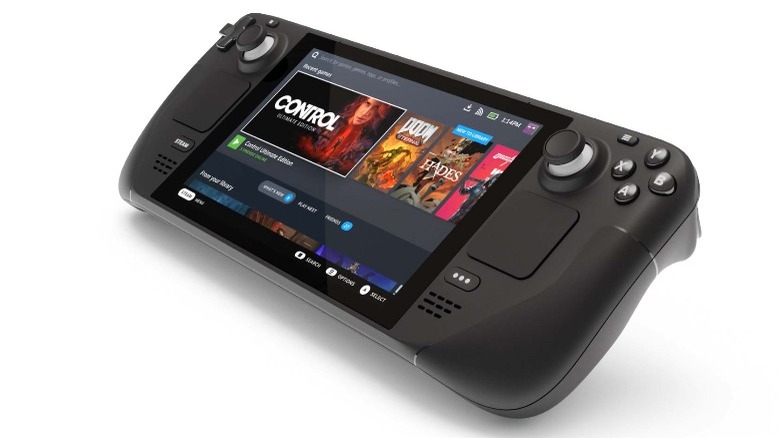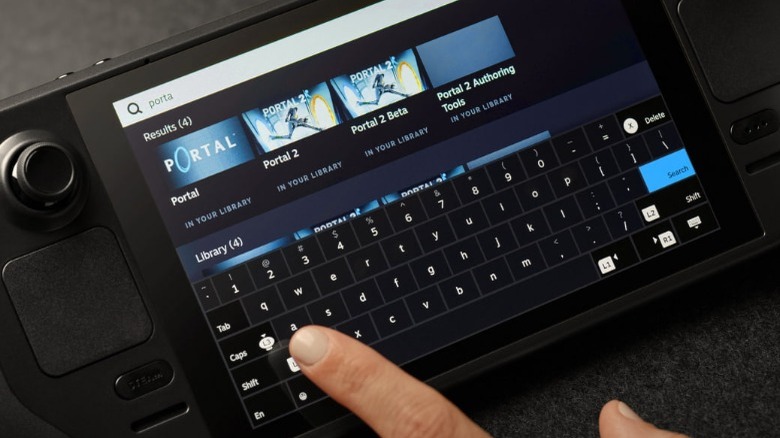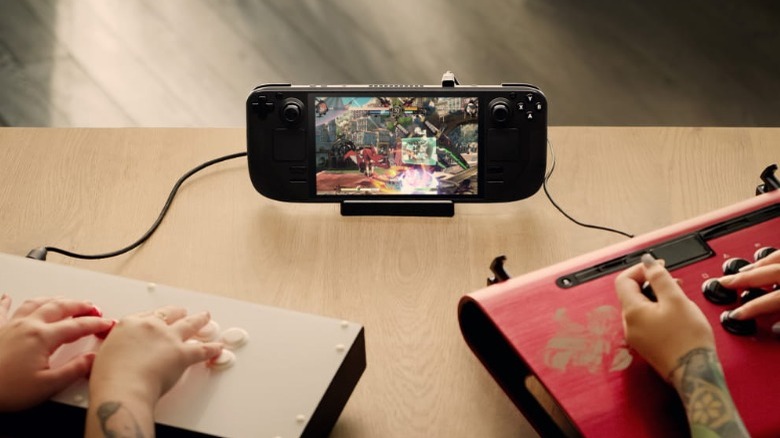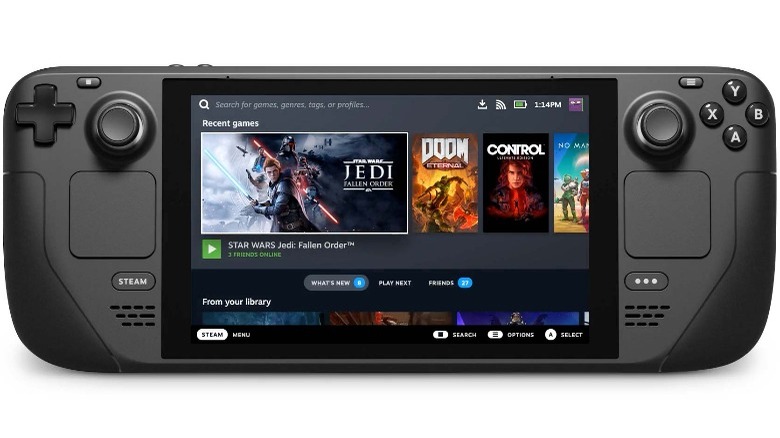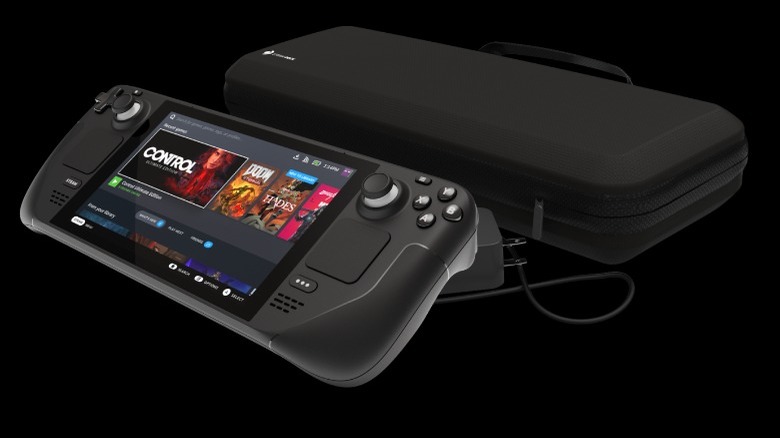Why We're Worried About Steam Deck
The new Steam Deck is on it's way. Valve broke the news in November that the device will be delayed an additional two months with a new expected release in February. Still, many people are eagerly awaiting the new handheld PC gaming console. The company has made some bold claims about the device's performance, but just as many gamers are looking on with apprehension as they wonder whether or not the Steam Deck will be able to live up to all the hype. This isn't all that surprising. New technology always comes with a degree of uncertainty. It's only natural that prospective buyers would be apprehensive when there are still so many unanswered questions about the Steam Deck. What will the role out look like? Will there be software or manufacturing errors? Will all of the features perform as promised?
There's still a lot of factors that are up in the air, even if Valve manages to meet all of its goals and deliver the product fans are hoping for. Here are a few of the reasons we're most worried about the Steam Deck.
Supply chain issues may affect availability
Recent years have given fans plenty of reason to be apprehensive about gaming device rollouts. Finding a PS5 or Xbox Series X/S at MSRP is still challenging over a year after their initial release and the cost of the graphics cards used in PC gaming rigs has inflated to more than double or even triple what it should be in many cases. There are several factors contributing to this phenomenon, but it seems to primarily come down to the effects of the global microchip shortage.
According to supply chain expert Dr. Thomas Goldsby in an interview with PC Gamer, "the pandemic has driven up purchase and consumption experience of more and more electronic based products. As people shifted how they use their time, from being at work to being at home, and the toys, gadgets and technology required to keep your sanity, frankly, during the course of the pandemic drove intense demand." This seems to have led to the demand for products that use these microchips outstripping the supply, leading to the overall shortage consumers are currently faced with.
The Steam Deck isn't exempt from this shortage. It will need access to the same technology that Sony, Microsoft, and several other gaming manufacturers have been struggling to get an adequate supply of. Valve's one advantage is that it's entering this turbulent market with its eyes open. They are likely to have made plans for the shortages in a way that Sony and Microsoft couldn't.
No exclusives
One of the advantages of the Steam Deck is that it will come with access to (almost) the entire catalog of over 50,000 games available in the Steam store. This is an especially big deal for PC gamers who already own an extensive library of titles on the platform, as they will immediately have access to them on their new handheld. The flipside to this is that there will likely never be any games exclusive to the Steam Deck. Anyone who owns a gaming PC can already play every game available on the handheld. This significantly lowers its value proposition.
The concept of exclusivity has been coming under some scrutiny in recent years. Sony's business model for the PS5 seems to revolve around using exclusives as incentive to buy the console. Meanwhile, Microsoft seems to be moving away from exclusivity in favor of suggesting the Xbox as an optional device while pushing the Xbox Game Pass subscription service on Xbox and PC users alike. Many may decide to simply use their PC for Steam games and buy a Nintendo Switch for their handheld needs as it offers access Nentendo's library of exclusives. Others may prefer a single library across multiple devices. Only time will tell.
Several big games won't be supported
Valve has made some bold claims about the compatibility of games on the Steam Deck, but it seems that there are a few games that it won't be able to run as intended. Fans of the popular titles "Apex Legends," "Destiny 2," "PUBG," and "Rainbow Six Siege" will be disappointed to learn that the multiplayer modes on these games aren't currently supported on the Steam Deck. This is due to the fact that the anti-cheat software used by these games isn't currently compatible with the Steam Deck's Linux-based operating system. Valve has reported on the official Steam Deck website that the company is currently working on a fix for this issue, but it's still unclear when this fix will be available.
There's also the question of whether or not the Steam Deck will be able to run Xbox Game Pass. Many gamers who have invested in the subscription service on their Xbox or PC might be hesitant to buy a console that can't use it, even if the same games are available for purchase on Steam. Right now, it doesn't seem like the Steam Deck's custom OS will work with Game Pass, although Valve designer Lawrance Yang has made comments in an interview with IGN suggesting there may be a workaround involving replacing the Linux-based OS with Windows. That method might involve certain sacrifices to the interface which gamers may not wish to make, however.
It's big for a handheld
Another concern is the sheer size of the Steam Deck. The days when gamers could simply slide their handheld gaming devices in their pockets seem long gone, but even so, the Steam Deck appears to be particularly big. According to the specifications page on the Steam Deck website, the device is 11.7" x 4.6"x 1.9" in size and weighs approximately 1.5lbs. For reference, the new Nintendo Switch OLED model is 9.5" x 4" x 0.55" and weighs .93lbs. with the Joy-Con controllers attached. The original model is even lighter, coming in at .88lbs and the Switch Lite weighs a mere .61lbs. That means the Steam Deck is taller, longer, over three times as thick, and more than 50% heavier than the heaviest version of the Switch.
1.5lbs might not seem like much, but it's important to remember that gamers will be holding up the device for an extended period of time. Many users on sites like Gamefaqs and Reddit have reported that they already find the Switch to be cumbersome for prolonged gaming sessions in handheld mode. Adding more than half the weight means it is likely that many gamers will find the Steam Deck to be an uncomfortably heavy device.
It costs a lot more than the Switch
Finally, there's the matter of price. The best way to measure its market value is to compare it to its competition. The Nintendo Switch has been an incredibly successful console. It sold 1.5 million units in its first week and is now up to a staggering 92.87 million units sold according to Nintendo. Its affordability seems to be one of the things that helped it to sell so well, coming in at $299.99 for the original version, $199.99 for the Switch Lite and $349.99 for the OLED model.
Like the Switch, there are three Steam Deck models – each with its own specs and price point. According to its website, the cheapest model costs $399.00 coming with 64GB eMMC, the second comes in at $529.00 with 256GB eMMC, and the most expensive version will be $649.00 and come with 512GB eMMC.
While many will argue that the hardware in the two devices isn't really comparable since the Steam Deck will host considerably more powerful processing than the Switch, it's worth noting that not everyone can afford a $400+ handheld console. It seems likely that the Switch will still represent the higher value proposition between the two consoles while the Stream Deck is more likely to be appreciated in enthusiast circles.

